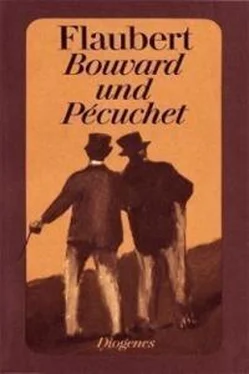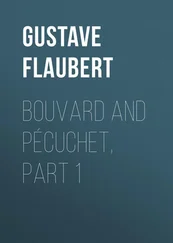This favouritism on the part of the public, so whimsical and unforeseen, dismayed Heurtaux. He had neglected his duties, confining himself to inspecting the military operations now and then, and giving utterance to a few remarks. No matter! He considered it a monstrous thing that an innkeeper should be preferred to one who had been formerly a captain in the Imperial service, and he said, after the invasion of the Chamber on the 15th of May: "If the military grades give themselves away like that in the capital, I shall be no longer astonished at what may happen."
The reaction began.
People believed in Louis Blanc's pineapple soup, in Flocon's bed of gold, and Ledru–Rollin's royal orgies; and as the province pretends to know everything that happens in Paris, the inhabitants of Chavignolles had no doubt about these inventions, and gave credence to the most absurd reports.
M. de Faverges one evening came to look for the curé, in order to tell him that the Count de Chambord had arrived in Normandy.
Joinville, according to Foureau, had made preparations with his sailors to put down "these socialists of yours." Heurtaux declared that Louis Napoleon would shortly be consul.
The factories had stopped. Poor people wandered in large groups about the country.
One Sunday (it was in the early days of June) a gendarme suddenly started in the direction of Falaise. The workmen of Acqueville, Liffard, Pierre–Pont, and Saint–Rémy were marching on Chavignolles. The sheds were shut up. The municipal council assembled and passed a resolution, to prevent catastrophes, that no resistance should be offered. The gendarmes were kept in, and orders were given to them not to show themselves. Soon was heard, as it were, the rumbling of a storm. Then the song of the Girondists shook the windows, and men, arm in arm, passed along the road from Caen, dusty, sweating, in rags. They filled up the entire space in front of the council chamber, and a great hurly–burly arose.
Gorju and two of his comrades entered the chamber. One of them was lean and wretched–looking, with a knitted waistcoat, the ribbons of which were hanging down; the other, black as coal—a machinist, no doubt—with hair like a brush, thick eyebrows, and old list shoes. Gorju, like a hussar, wore his waistcoat slung over his shoulder.
All three remained standing, and the councillors, seated round the table, which was covered with a blue cloth, gazed at their faces, pale from privation.
"Citizens!" said Gorju, "we want work."
The mayor trembled. He could not find his voice.
Marescot replied from the place where he sat that the council would consider the matter directly; and when the comrades had gone out they discussed several suggestions.
The first was to have stones drawn.
In order to utilise the stones, Girbal proposed a road from Angleville to Tournebu.
That from Bayeux had positively rendered the same service.
They could clear out the pond! This was not sufficient as a public work. Or rather, dig a second pond! But in what place?
Langlois' advice was to construct an embankment along the Mortins as a protection against an inundation. It would be better, Beljambe thought, to clear away the heather.
It was impossible to arrive at any conclusion. To appease the crowd, Coulon went down over the peristyle and announced that they were preparing charity workshops.
"Charity! Thanks!" cried Gorju. "Down with the aristocrats! We want the right to work!"
It was the question of the time. He made use of it as a source of popularity. He was applauded.
In turning round he elbowed Bouvard, whom Pécuchet had dragged to the spot, and they entered into conversation. Nothing could keep them back; the municipal building was surrounded; the council could not escape.
"Where shall you get money?" said Bouvard.
"In the rich people's houses. Besides, the government will give orders for public works."
"And if works are not wanted?"
"They will have them made in advance."
"But wages will fall," urged Pécuchet. "When work happens to be lacking, it is because there are too many products; and you demand to have them increased!"
Gorju bit his moustache. "However, with the organisation of labour―"
"Then the government will be the master!"
Some of those around murmured:
"No, no! no more masters!"
Gorju got angry. "No matter! Workers should be supplied with capital, or rather credit should be established."
"In what way?"
"Ah! I don't know; but credit ought to be established."
"We've had enough of that," said the machinist. "They are only plaguing us, these farce–actors!"
And he climbed up the steps, declaring that he would break open the door.
There he was met by Placquevent, with his right knee bent and his fists clenched:
"Advance one inch further!"
The machinist recoiled. The shouting of the mob reached the chamber. All arose with the desire to run away. The help from Falaise had not arrived. They bewailed the count's absence. Marescot kept twisting a pen; Père Coulon groaned; Heurtaux lashed himself into a fury to make them send for the gendarmes.
"Command them to come!" said Foureau.
"I have no authority."
The noise, however, redoubled. The whole green was covered with people, and they were all staring at the first story of the building when, at the window in the middle, under the clock, Pécuchet made his appearance.
He had ingeniously gone up by the back–stairs, and, wishing to be like Lamartine, he began a harangue to the populace:
"Citizens!―"
But his cap, his nose, his frock–coat, his entire personality lacked distinction.
The man in the knitted waistcoat asked him:
"Are you a workman?"
"No."
"A master, then?"
"Nor that either."
"Well, take yourself off, then."
"Why?" returned Pécuchet, haughtily.
And the next moment he disappeared, in the machinist's clutch, into the recess of the window.
Gorju came to his assistance. "Let him alone! He's a decent fellow." They clenched.
The door flew open, and Marescot, on the threshold, announced the decision of the council. Hurel had suggested his doing so.
The road from Tournebu would have a branch road in the direction of Angleville and leading towards the château of Faverges.
It was a sacrifice which the commune took upon itself in the interest of the working–men.
They dispersed.
When Bouvard and Pécuchet re–entered their house, women's voices fell upon their ears. The servants and Madame Bordin were breaking into exclamations, the widow's screams being the loudest; and at sight of them she cried:
"Ha! this is very fortunate! I have been waiting for you for the last three hours! My poor garden has not a single tulip left! Filth everywhere on the grass! No way of getting rid of him!"
"Who is it?"
"Père Gouy."
He had come with a cartload of manure, and had scattered it pell–mell over the grass.
"He is now digging it up. Hurry on and make him stop."
"I am going with you," said Bouvard.
At the bottom of the steps outside, a horse in the shafts of a dung–cart was gnawing at a bunch of oleanders. The wheels, in grazing the flower borders, had bruised the box trees, broken a rhododendron, knocked down the dahlias; and clods of black muck, like molehills, embossed the green sward. Gouy was vigorously digging it up.
One day Madame Bordin had carelessly said to him that she would like to have it turned up. He set about the job, and, in spite of her orders to desist, went on with it. This was the way that he interpreted the right to work, Gorju's talk having turned his brain.
He went away only after violent threats from Bouvard.
Madame Bordin, by way of compensation, did not pay for the manual labour, and kept the manure. She was wise: the doctor's wife, and even the notary's, though of higher social position, respected her for it.
Читать дальше








![Гюстав Флобер - Закат Карфагена [Сборник]](/books/414440/gyustav-flober-zakat-karfagena-sbornik-thumb.webp)


